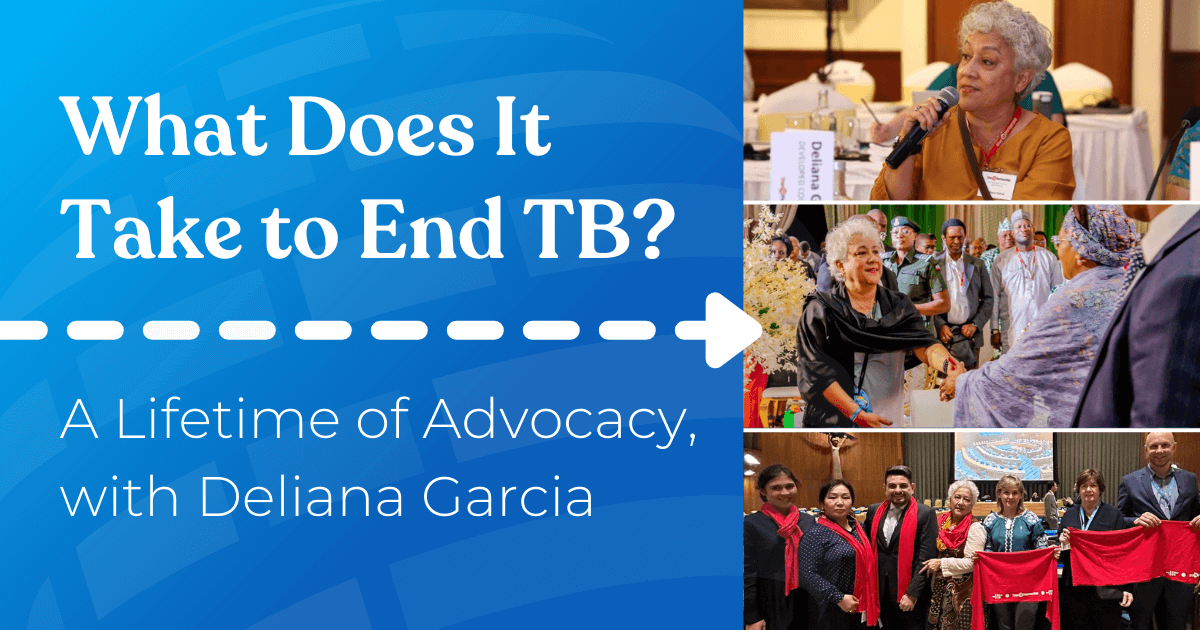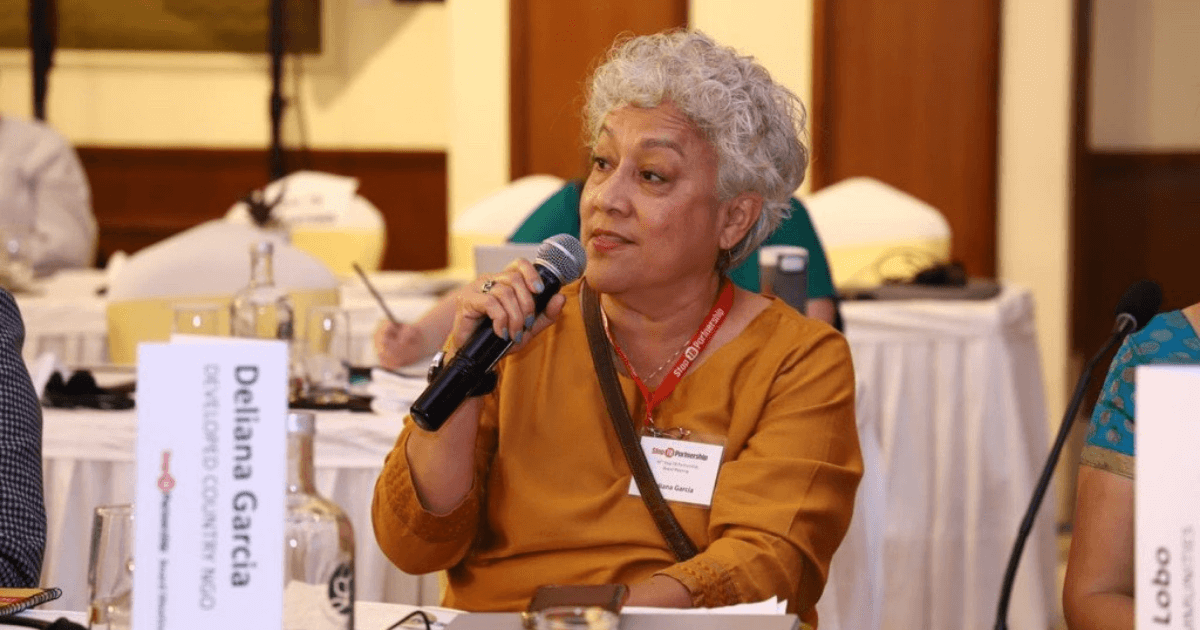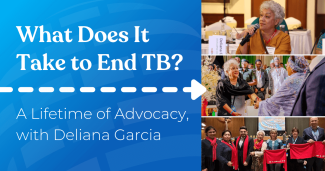What Does It Take to End TB? A Lifetime of Advocacy, with Deliana Garcia

By the time you’ve finished reading this paragraph, someone will have died from tuberculosis. TB has regained its number one spot at the top of the list of infectious disease killers, after a brief upset by COVID-19. In 2023, TB killed 1.25 million people – despite inexpensive medication regimens to cure it. Of course, it’s far more complex: the treatment is inexpensive, but even at a low price point, it’s out of reach for most worldwide. The treatment is also lengthy and difficult on the body. TB stigma runs rampant around the world, further complicating the picture. So what does it really take to end TB? Deliana Garcia, through her work at Migrant Clinicians Network and beyond, has dedicated her career to this question – and has provided a multitude of answers that has saved hundreds of lives.

Del has long advocated for individuals around the world who have to move – either because they are forced to leave home because of violence, disaster, or war, or because they are seeking a better life. Working with MCN’s Ed Zuroweste, MD, Founding Medical Director, and Jillian Hopewell, Chief Programs Officer of Education and Communication, Del envisioned and launched Health Network, MCN’s virtual continuity of care program, which began specifically to assist people who are moving with tuberculosis; its original name was TBNet. Del recognized that individuals’ lives were at risk if they were forced to move during their TB treatment. Interrupted TB treatment doesn’t just lead to more illness. It also contributes to the development of multidrug-resistant TB, which is very difficult and more expensive to treat and a significant public health threat. Health Network steps in to make sure people can safely continue treatment regardless of their travels. Since 1995, Health Network has connected more than 15,000 people with TB and other health needs to the care they need, all across the US and 149 nations. Where would these TB patients be without Health Network? Many would have spread the disease; many would have died.

Del’s work also extends into TB advocacy at the local, state, national, and international levels, with governments, NGOs, and international bodies including through the International Union of Tuberculosis and Lung Disease, where she has served as the chair of the Vulnerable Workers Working Group and other committees. Those who are moving, and who are resettling in a new place, step into a world of uncertainty. Del spoke about this tenuous moment at the United Nations in 2018, where she pushed for a worldwide TB response that is guided by the principles of human rights, noting that, for people who have recently relocated, “the goal of survival can be completely undone by illness and those affected with tuberculosis often weigh seeking care for a treatable and curable disease with the danger of losing their livelihood, their home, and their tenuous connection to a social network.” Ending TB doesn’t just bring stability and safety to individuals’ lives, she added:
“Eradicating tuberculosis can free a world potential so great as to reduce poverty, decrease child mortality, and increase educational levels, productivity, and global wealth.”

This year, the push to end TB has seen significant setbacks. An additional three people have died since you started reading this post. Despite significant adversities, Del continues to push ahead, innovating to save lives, vocalizing the need to bring human rights into health care, and moving us forward in the global fight to stop TB. “Communities continue their work whether they have funding or not, because they understand the urgency, what’s at risk, and they have a real desire for all the gains not to be lost,” Del says. On this World TB Day, we celebrate the work of Del and our fellow advocates. Thank you, Del!
- Log in to post comments
